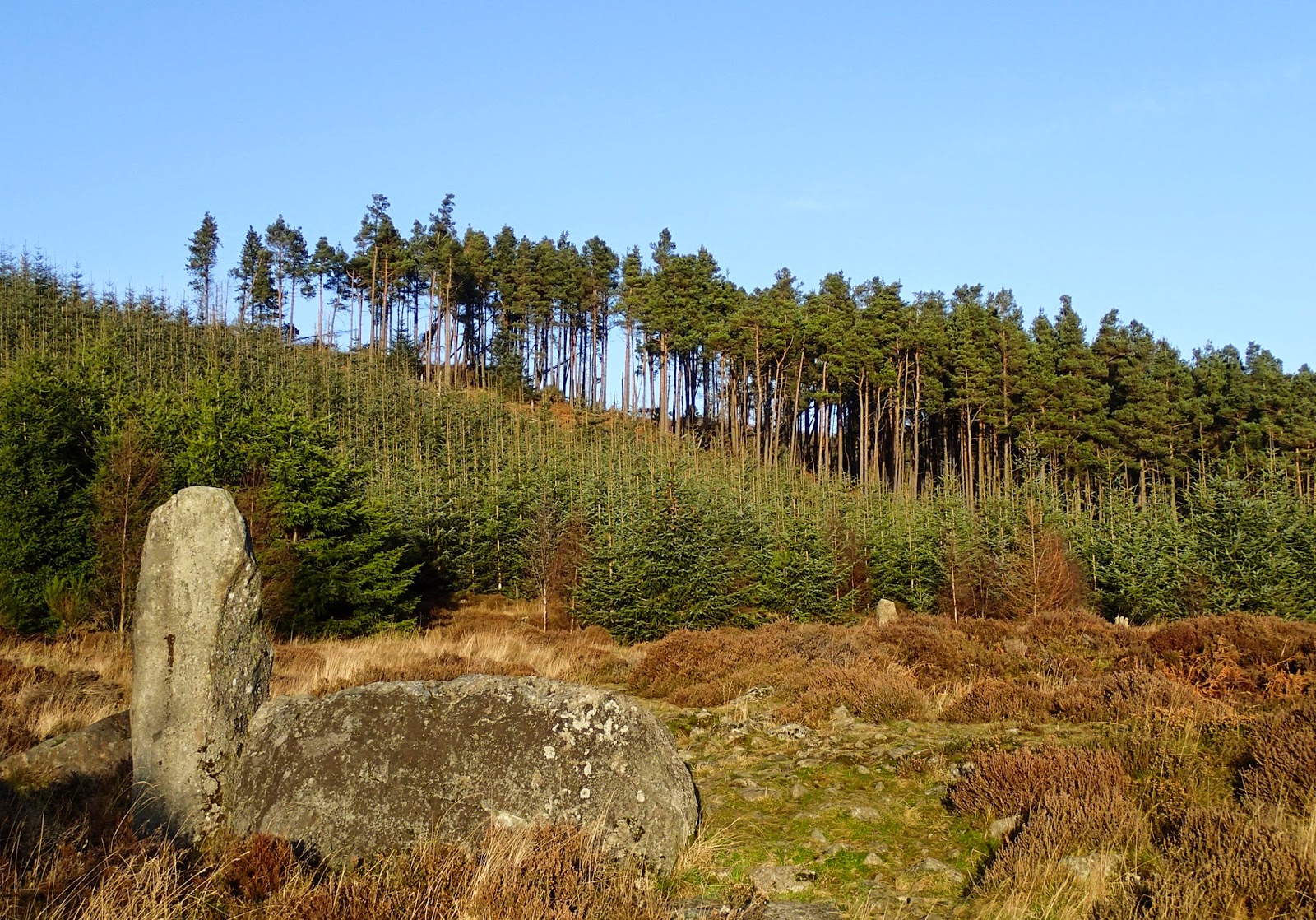The December weather in the north-east of Scotland has alternated between deep low pressure systems bringing gales and snow, and bright sunny interludes. The wind hasn't dropped for long so there hasn't been opportunity for sea kayaking, but conditions have been good for walking.
As a first hillwalk since returning home I chose two local hills, Cairn William and Pitfichie Hill. The starting point at the carpark for the Pitfichie Forest Cycle Trails is just ten minutes from home, but despite this I still got started an hour later than planned due to faffing about finding kit. After four months away, things seem always to migrate to the furthest corner of cupboards; it takes a couple of walks or paddles for everything to be reassembled to a state where I can just pick up and go!
The morning was bright and sharp, almost brittle and from the sky came the calls of the geese flocks, so evocative of winter. In small groups, in flocks and in skeins, the geese were writing patterns across the morning sky as they moved from their roosts to feed on the farmland. Predominantly Greylags but the higher pitched calls of Pinkfeet could be heard too, echoing faintly in the quiet of the forest.
There is a walk of a few kilometres through the wood to start this walk and it proved the most challenging underfoot conditions of the day. Recent snow had partially melted and then re-frozen into hard translucent ice. The forest roads were lethally slippery and I had to pick a way along the margins to walk safely.
The track heads uphill for some way before swinging north and emerging into a clearing containing Whitehill Stone Circle. This is a recumbent stone circle of the type found only in the north east of Scotland and appears to have the same alignment as nearby (7.5 km distant) Old Keig circle in being oriented to the major lunar standstill which occurs at 18.6 year intervals - at the standstill the moon appears to move from high in the sky to low on the horizon in just two weeks.
Whitehill circle is well signposted from the road and is one of the more frequently visited monuments despite not being the most complete of stone circles. One of the flankers has fallen and lies next to the recumbent with just one face above the ground while all but a couple of the circle stones are fallen or missing.
The interior kerb of stones is one of the most complete examples though; the kerb and central cairn were usually built over a burnt area, leading to an interpretation of a part-funerary purpose for these enigmatic circles.
It was cold in the breeze despite the sunshine and I didn't stay too long, returning to the track to continue on towards Cairn William. We are fortunate in having so many remainders of our ancient past in circles and stones here, however little we truly know of their purpose or the folk who built them. Some things can't have changed down the millenia though, the December winds would still have been cold and the geese would still have graced the winter skies with their wild music.






No comments:
Post a Comment